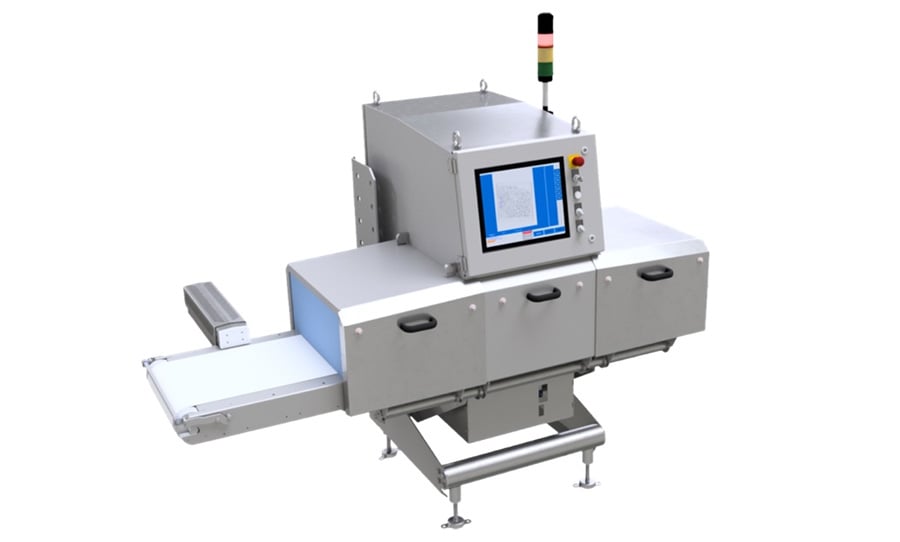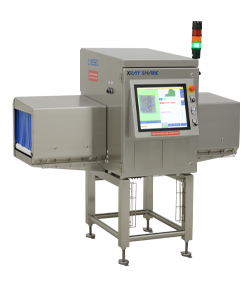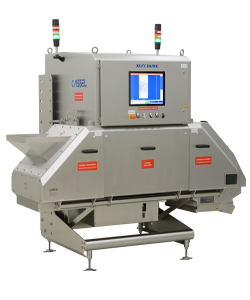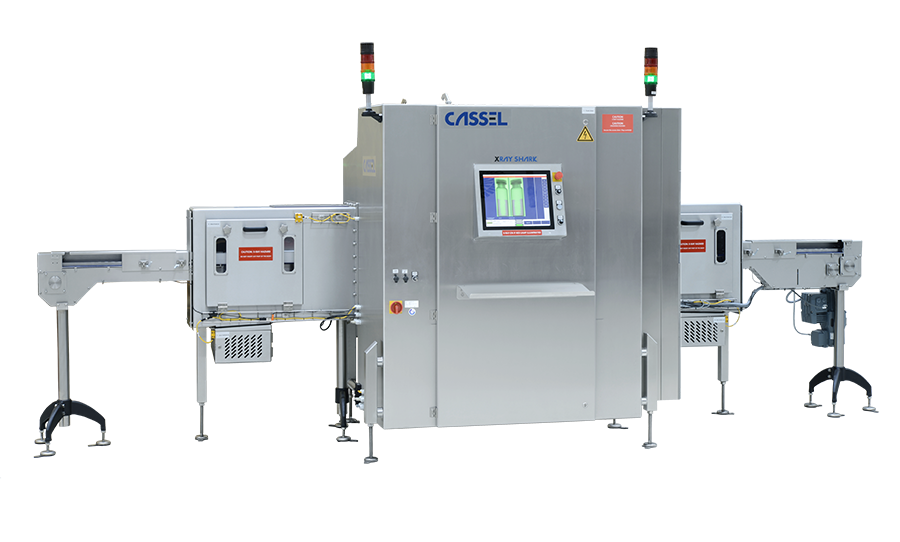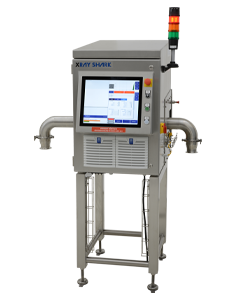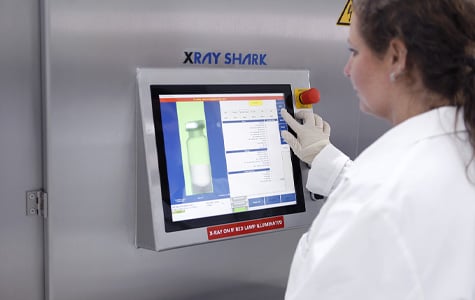How does an X-ray inspection machine work?
A x-ray product inspection detects all substances whose density differs significantly from the product being inspected. Contaminants with a density differential can include impurities, air bubbles, breaks, or other defects that can compromise the safety or integrity of a product.
What is the difference between a manual X-ray machine and an industrial X-ray machine?
Two are two common types of x-ray machines:
- A manual x-ray machines and industrial x-ray machines. A manual x-ray machine captures an image that is reviewed by a human operator—for example, a manual x-ray machine used in an airport for baggage review or in medical applications.
- An industrial x-ray machine is reviewed by image analysis software. This software includes image processing and analysis algorithms unique to each industrial x-ray inspection machine manufacturer. CASSEL Inspection software offers fast and flawless image processing with enhancement features and multiple views.
What is detectable by an X-ray inspection machine?
An x-ray inspection machine is designed to detect unwanted physical contaminants. An x-ray machine is able to detect:
- Metals
- Glass
- Ceramics
- Plastics
- Stone
- Bone
- Teflon
X-ray inspection machines are unable to detect anything that floats on water. Some examples include nylon, rubber, ice, wood, insects, and hair.
What products are better suited to be inspected by an X-ray machine?
Contaminant detection is a critical requirement for many industries, including food and beverage, pharmaceuticals and cosmetics, chemicals and plastics, and textiles. But what type of inspection system is right for your application?
X-ray inspection and metal detection are both excellent options to protect your valuable products.
However, in the food industry, many packaged foods passing through a metal detector will cause a signal unbalance, mimicking the presence of metal contaminants. Metalized film packaging, like potato chip bags or candy wrappers, and prepared food in foil trays are best suited for x-ray inspection. In addition, products from farms that may contain rocks or glass are also great candidates for x-ray inspection.
What is the longevity of industrial X-ray equipment?
An industrial x-ray machine should provide between 5-10 years of service. Unique in the industry, our exceptional 2-year warranty assures that CASSEL Inspection remains at your side for the life of the system. Our engineers provide on-site or remote assistance and have the expertise to help you succeed.
What factors affect X-ray sensitivity?
CASSEL’s XRAY SHARK systems offer up to four x-ray beams sensitive enough to detect dense contaminants in a variety of containers. The ability to reliably provide relative density variation is key.
X-ray sensitivity can be affected by:
- Product thickness, density and texture
- Detection software
- Line speed
- Detector pixel size
What are the safety considerations for X-ray equipment?
As with any industrial machine, it is important to consider the safety considerations for x-ray equipment. CASSEL industrial x-ray inspection machines use an x-ray beam that is not generated from a radioactive source. Instead, our machines use an electronically generated beam that is designed to emit energy only when the source is turned on. CASSEL Inspection x-ray machines are designed to meet the most stringent global safety requirements to protect the safety of all machine operators.
What’s the best sensitivity I can get on my X-ray system?
Are curtain-less X-ray systems available?
Can X-ray inspection systems detect glass contaminants within a glass container?
Is metal detection or X-ray inspection better for my application?
Are CASSEL inspection detection systems customizable?
